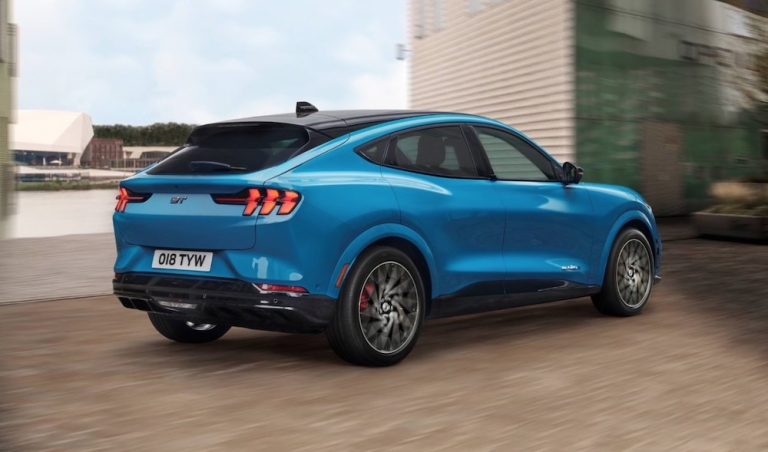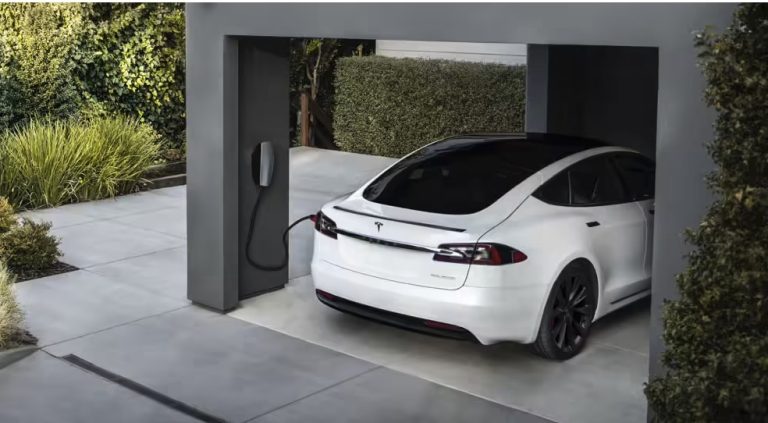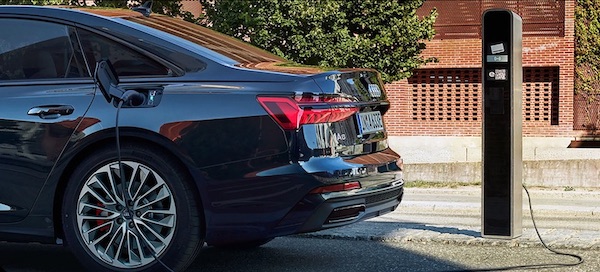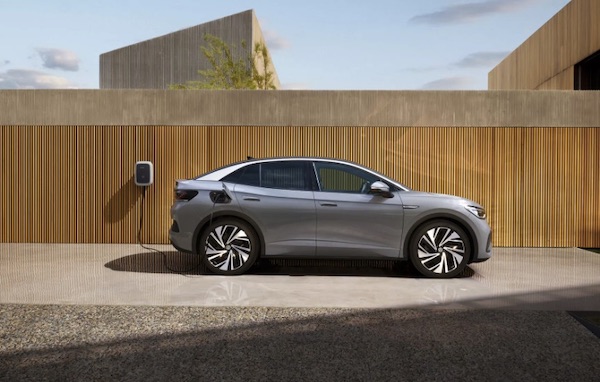Electric Cars: The Basics
For those of you new to zero-emission electric driving, we recommend a read of the following articles:
Sign up to the e-zoomed Electric Living newsletter
The BMW 3 Series Saloon PHEV
BMW (Bayerische Motoren Werke AG), is a leading global automotive manufacturer headquartered in Munich, Germany. BMW is well known for its portfolio of luxury vehicles, to include the famed Rolls-Royce luxury cars.
The group manufacturers a number of cars under its BMW brand, to include battery-electric vehicles (BEVs) and plug-in hybrid electric vehicles (PHEVs). The company currently has the following portfolio of plug-in hybrid electric vehicles (PHEVs):
- BMW 2 Series Active Tourer PHEV
- BMW 3 Series Saloon PHEV
- BMW 3 Series Touring PHEV
- BMW 5 Series Saloon PHEV
- BMW 5 Series Touring PHEV
- BMW 7 Series PHEV
- BMW X1 PHEV
- BMW X2 PHEV
- BMW X3 PHEV
- BMW X5 PHEV
The BMW 3 Series is currently on its sixth generation. The BMW 3 Series saloon is also available as a plug-in hybrid electric vehicle (PHEV).
The BMW 3 Series has always been considered a good all-rounder, and the 330e plug-in hybrid saloon is no different. The medium-sized electric vehicle (EV) is a good option for those seeking practicality, quality and keen to leverage the benefits of plug-in electric power.
Though the onboard EV battery size is limited to 11.15 kWh, the BMW plug-in hybrid is able to deliver a fuel-free zero-tailpipe emission electric range up to 62 km (WLTP). Of course, do keep in mind that the real-world EV range will be lower than the claimed range, and assuming a 55 km pure electric range is more realistic.
However, ample e-range to take advantage of the lower cost of driving an electric car. Depending on where and when you charge the EV, the cost of electric driving will be between 5 and 10 cents per km. Far cheaper compared to driving on a petrol or diesel combustion engine.
Also, the best way to enjoy the smoother and silent electric mode, is to make sure that the EV battery is ‘topped up’ on a regular basis. This also helps with the long-term health and maintenance of the EV battery. BMW offers a 8 years or 160,000 km warranty.
The EV has a 3.7 kW AC onboard charger, which is disappointing, given the upmarket price tag. A 7.4 kW onboard charger should have been incorporated as standard. Nevertheless, do take advantage of the faster and safer charging using a dedicated EV charger like Wallbox.
The BMW electric car can be fully charged in 3.5 hours. We at e-zoomed discourage the use of a domestic 3-PIN plug for EV charging. Using a domestic plug will take up to 5.5 hours to charge the EV. The PHEV does not offer fast DC charging compatibility.
The more the EV is driven on EV mode, the better is the overall efficiency and fuel economy of the vehicle. BMW claims that the BMW 330e PHEV can deliver up to 1.8 l/100 km. Of course, the real-world fuel consumption will depend on how well you leverage the use of the pure electric motor/ EV battery. The more, the better!
Like all PHEVs, the pairing of an electric motor with the internal combustion engine (ICE), also helps reduce the tailpipe-emissions for the BMW 3 Series plug-in electric car. The claimed tailpipe-emissions is up to 34g (CO2/km). The lower the emissions, the lower the local air pollution. A win-win for all!
The performance of the 2.0-litre (four-cylinder) BMW 3 Series demonstrates its capability as a good all-rounder. The EV is quick, despite the extra EV battery weight. It can achieve 0-100 km/h in 5.8 seconds (maximum power: 292 hp). The EV also benefits from instant torque. Top speed is 230 km/h. The PHEV is available as a rear-wheel drive (RWD) and an all-wheel drive (AWD).
The BMW PHEV has a good quality interior, as would be expected from a premium-badged EV. The four-door electric saloon is practical too, though the boot space has been reduced due to the placement of the EV battery (available cargo volume is 375 L).
In terms of technology, the EV includes: BMW head-up display, BMW curved-display, BMW digital key, reversing assistant, BMW intelligent personal assistant and a lot more. Bottom-line the drivers cockpit is modern, intuitive and practical.
Bottom-line, electric driving is good for the environment and the wallet!
| PROS | CONS |
|---|---|
| High quality interior and specifications | Small EV battery and limited electric range |
| Refined drive and decent performance | Onboard charger limited to 3.7 kW. DC charging not available |
| Cheap to run on electric mode | All-wheel drive not standard for all variants |
The BMW 3 Series Plug-In Hybrid Saloon (credit: BMW)
| At A Glance | |
|---|---|
| EV Type: | Plug-In Hybrid Electric Vehicle (PHEV) |
| Body Type: | Saloon |
| Engine: | Petrol-Electric |
| Available In Ireland: | Yes |
| Variants (2 Options) |
|---|
| BMW 330e Saloon (from € 53,315) |
| BMW 330e xDrive Saloon (from € 55,215) |
| EV Battery & Emissions | |
|---|---|
| EV Battery Type: | Lithium-ion |
| EV Battery Capacity: | Available in one battery size: 11.15 kWh |
| Charging: | DC charging not available. Onboard charger 3.7 kW AC (0% – 100%: 3.5 hrs) |
| Charge Port: | Type 2 |
| EV Cable Type: | Type 2 |
| Tailpipe Emissions: | 34 – 30g (CO2/km) |
| Warranty: | 8 years or 160,000 km |
| Average Cost Of Residential Charging | |
|---|---|
| Battery net capacity : 8.8 kWh | € 2.10 |
| Battery net capacity : 11.6 kWh | € 2.78 |
| Battery net capacity : 12.0 kWh | € 2.87 |
| Battery net capacity : 13.10 kWh | € 3.14 |
| Battery net capacity : 14.10 kWh | € 3.37 |
- Note 1: The average cost of residential electricity in Ireland varies depending on the region, supplier and type of energy used. An average for Ireland is 23.97 cents/kWh.
- Note 2: Not all EV manufactures make available the data on net EV battery capacity, and in a number of instances the EV battery capacity advertised, does not state if it is gross or net capacity. In general, usable EV battery capacity is between 85% to 95% of the gross available capacity.
| Charging Times (Overview) | |
|---|---|
| Slow charging AC (3 kW – 3.6 kW): | 6 – 12 hours (dependent on size of EV battery & SOC) |
| Fast charging AC (7 kW – 22 kW): | 3 – 8 hours (dependent on size of EV battery & SoC) |
| Rapid charging AC (43 kW): | 0-80%: 20 mins to 60 mins (dependent on size of EV battery & SoC) |
- Note 1: SoC: state of charge
| Dimensions | |
|---|---|
| Height (mm): | 1444 |
| Width (mm): | 1827 |
| Length (mm): | 4709 |
| Wheelbase (mm): | 2851 |
| Turning Circle (m): | 11.4 |
| Boot capacity (L): | 375 |
| BMW 330e Saloon | |
|---|---|
| EV Battery Capacity: | 11.15 kWh |
| Pure Electric Range (WLTP): | 61 − 62 km |
| Electric Energy Consumption (kWh/100km): | 16.2 − 16.0 |
| Fuel Consumption (l/100km): | 1.4 − 1.3 |
| Charging: | DC charging not available. Onboard charger 3.7 kW AC (0% – 100%: 3.5 hrs) |
| Top Speed: | 230 km/h |
| 0-100 km/h: | 5.8 seconds |
| Drive: | Rear-wheel drive (RWD) |
| Electric Motor (kW): | 80 |
| Max Power (hp): | 292 |
| Torque (Nm): | 420 |
| Transmission: | Automatic |
| Seats: | 5 |
| Doors: | 4 |
| Unladen Weight-EU (kg): | 1,845 |
| Colours: | 6 |
| NCAP Safety Rating: | Five-Star |
| BMW 330e xDrive Saloon | |
|---|---|
| EV Battery Capacity: | 11.15 kWh |
| Pure Electric Range (WLTP): | 59 − 60 km |
| Electric Energy Consumption (kWh/100km): | 16.9 − 16.7 |
| Fuel Consumption (l/100km): | 1.8 − 1.5 |
| Charging: | DC charging not available. Onboard charger 3.7 kW AC (0% – 100%: 3.5 hrs) |
| Top Speed: | 230 km/h |
| 0-100 km/h: | 5.8 seconds |
| Drive: | All-wheel drive (AWD) |
| Electric Motor (kW): | 80 |
| Max Power (hp): | 292 |
| Torque (Nm): | 420 |
| Transmission: | Automatic |
| Seats: | 5 |
| Doors: | 4 |
| Unladen Weight-EU (kg): | 1,895 |
| Colours: | 6 |
| NCAP Safety Rating: | Five-Star |
Ireland: EV Market Overview
As is the case in a number of global markets, to include the European Union and the United Kingdom, the sale of electric cars in Ireland is also fast gaining momentum. In fact, in January 2022, battery-electric vehicles (BEVs) and plug-in hybrid electric vehicles (PHEVs), accounted for 21% of all new cars licensed in Ireland. Put another way, more than a fifth of the cars bought in Ireland were either pure electric or a plug-in hybrid electric vehicles.
It is also worth nothing the continued decline in the sale of diesel vehicles in Ireland, as families and businesses migrate to lower tailpipe emission electric vehicles (EVs). Diesel market share has declined from 34.2% in early 2021 to 19.7% in early 2022. We can expect this trend to continue for the forseeable future.
The government has set a target of 936,000 electric vehicles by 2030, with 845,000 to be private passenger cars. This will be approximately a third of the vehicles on roads in Ireland (currently there are 2.8 million vehicles on the road). Like many other governments, Ireland is committed to ending the sale of internal combustion engine (ICE) cars by 2030.
The government is committed to the rapid adoption of electric cars in the country. The Department of Transport has committed €100 million for EV subsidies in 2022 (almost double the commitment in 2021). The grant for private electric vehicles is up to €5,000 on qualifying battery-electric vehicles (BEVs). Plug-in hybrid electric vehicles (PHEVs), do not qualify for the electric vehicle grant.
Ireland: Top Electric Cars
| Top Electric Cars | Type Of EV |
|---|---|
| Tesla Model 3 | Battery-electric vehicle (BEV) |
| Volkswagen ID.3 | Battery-electric vehicle (BEV) |
| Nissan Leaf | Battery-electric vehicle (BEV) |
| Renault Zoe | Battery-electric vehicle (BEV) |
| Volkswagen ID.4 | Battery-electric vehicle (BEV) |
| Hyundai IONIQ 5 | Battery-electric vehicle (BEV) |
| Kia e-Niro | Battery-electric vehicle (BEV) |
| Kia EV6 | Battery-electric vehicle (BEV) |
While e-zoomed uses reasonable efforts to provide accurate and up-to-date information, some of the information provided is gathered from third parties and has not been independently verified by e-zoomed. While the information from the third party sources is believed to be reliable, no warranty, express or implied, is made by e-zoomed regarding the accuracy, adequacy, completeness, legality, reliability or usefulness of any information. This disclaimer applies to both isolated and aggregate uses of this information.






























